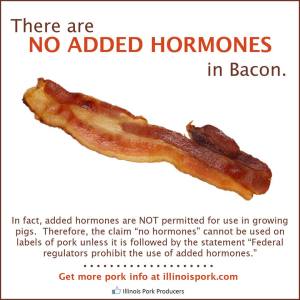It’s time for another edition of the Weekly Round Up. This week, we’re talking meat labels, the importance of character, a cute little girl and her cow, and why we love farming. Check it out.
- As you’re wandering through the meat section of your local grocery store, do you look at the labels on the meat and think to yourself, “Holy crap. What does all of this mean?” Or, maybe you think you’ve got it figured out, when in reality, the marketing trap has cornered again. Either way, check out this series of posts from Mom At The Meat Counter. She does a great job of explaining what all of those crazy labels mean.
- And speaking of labels, did you know this?

- This. Because it’s awesome. I love me some little, brown Jersey cows!

- Speaking of cows, I wanted to share this story. The dairy industry is a small one, but a tight-knit one just the same. Though I don’t personally know Reese, I do remember showing against her mom at the All American Jersey Show in Louisville, Ky. Reese has now been in the hospital for 13 months, following a house fire. While she and her sister were staying at their grandparents’ house, an accidental fire started in Reese’s room and her grandmother, Patricia, literally walked through fire to get to her. Like any little girl separated from her animals, Reese misses her, too, specifically her cow, Pantene. So, Pantene came to Johns Hopkins to visit her. Cheers to the hospital for making it happen.
- Truer words were never spoken…

- Speaking of livestock (see what I’m doing here?), check out this blog post from Jean’s Boots Are Made For Talking. Whether you show livestock or not, this is worth the read. When you’re on the sidelines at a cattle show or a soccer game, are you coaching character?
- And finally, this from Modern Day Farm Chick. It’s a couple months old, but still sooooo good. It’s all about why farmers farm. No so much about how much or what, but the most important aspect: why.

